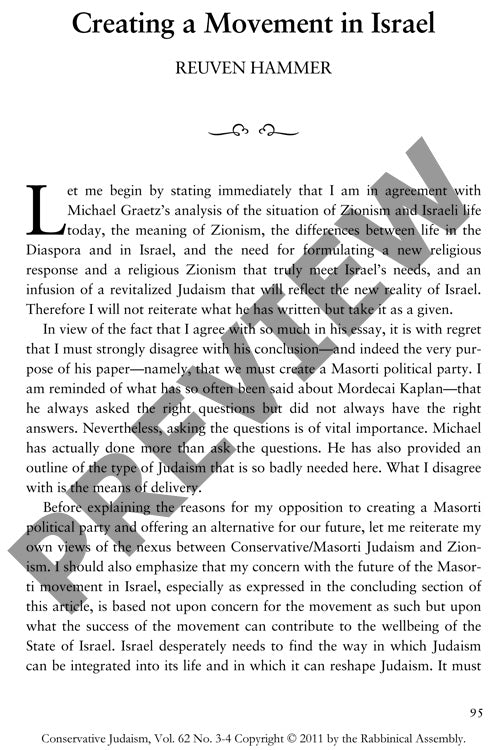Creating a Movement in Israel
Couldn't load pickup availability
The Masorti (Conservative Judaism) movement stands at a crossroads in Israel, facing mounting pressure to translate its religious and social influence into formal political power. While some advocate creating a dedicated Masorti political party, a careful analysis of Conservative Zionism's trajectory - from Solomon Schechter and Israel Friedlander to the present day - reveals significant barriers to this approach. Through examination of foundational texts and current Israeli political dynamics, this research demonstrates that party formation would likely undermine rather than advance Masorti goals. Israel's fractured political landscape, the cautionary example of failed religious parties like Meimad, and deep political divisions among Masorti constituents all argue against partisan engagement. Instead, the movement's future effectiveness lies in following the model of influential non-party organizations like Gush Emunim and Chabad, focusing on building an ideologically coherent social movement. By developing dedicated leadership, expanding congregational presence, and cultivating elite groups like Tz'miah (Tziyonut Masortit Hevratit), the Masorti movement can better pursue its mission of transforming Israeli society through Conservative Jewish values while upholding the original Zionist vision of Israel as a moral exemplar.

More Information
-
Physical Description
-
Publication Information
Published 2011
ISBN
-
Publication Credits
Reuven Hammer

